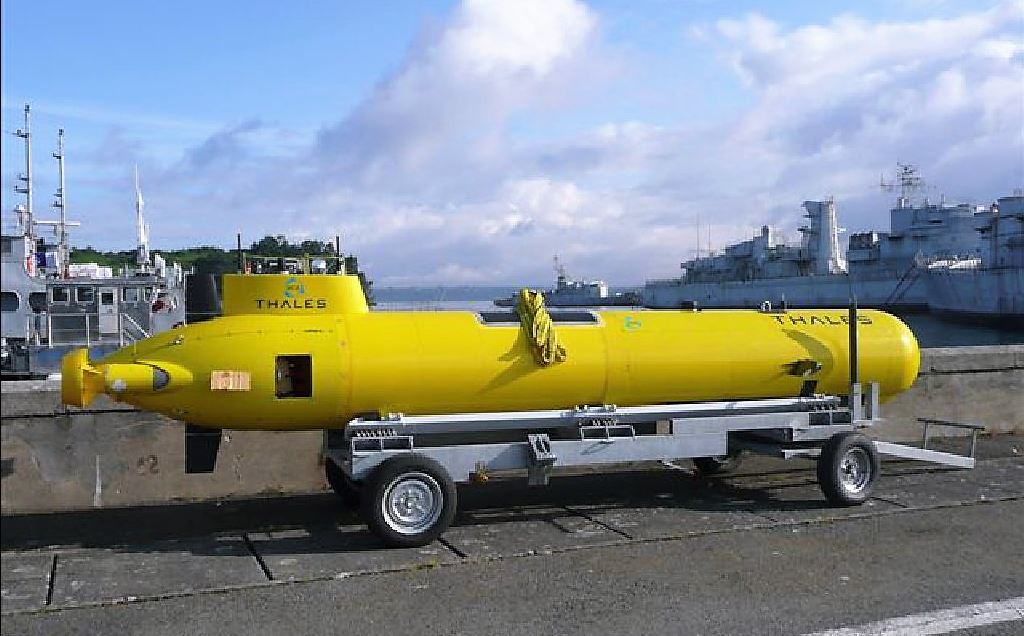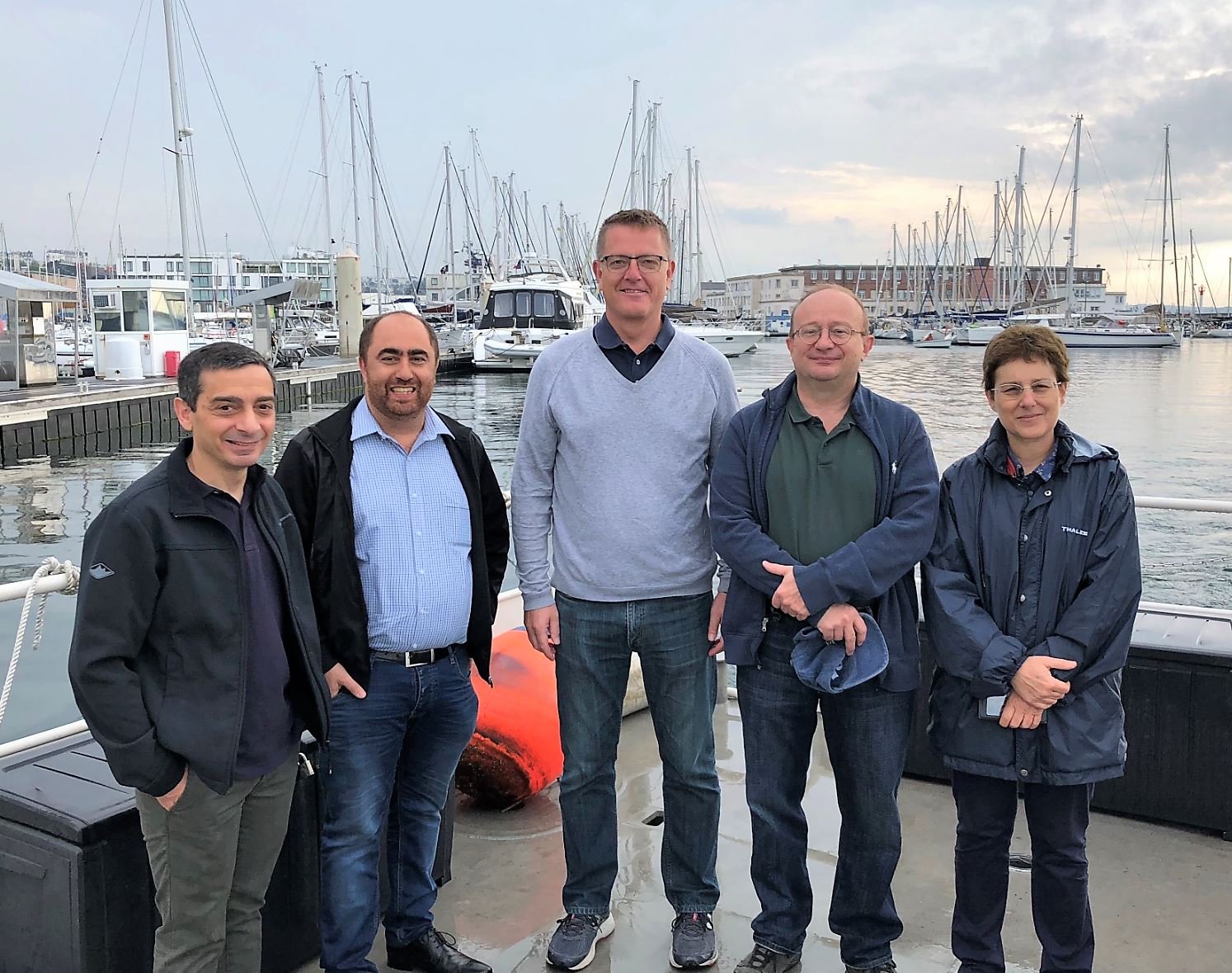
Flinders University’s research engagement in Europe is advancing after becoming the first university outside of France invited to join CELADON, an association of leading industry and academic institutions that operates land-based and marine facilities adjacent to the French Naval Academy in Brest, France.
The development builds on the recently announced collaboration between Flinders and global defence giant Thales (an industry member of CELADON) that was announced during President Emmanuel Macron’s visit to Australia in May.
As part of its membership of CELADON, Flinders researchers and students will have the opportunity to undertake sea trials with unique infrastructure in the area of autonomous surface and underwater vehicles, and help develop future marine technologies in research projects with other CELADON members.
Projects being explored include Flinders researchers and students monitoring projects involving autonomous marine vessels in the Bay of Brest from Australia.
Flinders’ participation in CELADON reinforces the University’s growing international reputation in the field autonomous maritime vessels. By joining leading academic and industry partners in Brest, Flinders underlines its participation and commitment to the South Australia-Brittany sister region agreement.
The new CELADON opportunity was signed in Brest this week (4 July 2018) by Flinders University President and Vice-Chancellor Professor Colin Stirling. He was also able to witness a range of CELADON sea trials, along with the Flinders Centre for Maritime Engineering, Control and Imaging’s Director Associate Professor Karl Sammut and Flinders Defence Partnerships Director Tony Kyriacou.
“Flinders is proud to be joining leading French industry and academic institutions in such an exciting field of future technology,” says Professor Stirling. “This demonstrates the international focus of our University and is an excellent example of collaboration that is taking place at Flinders with major defence players around the world.”
The new affiliation provides for some unique opportunities for Flinders University students and researchers to be involved in projects in France.
Professor Stirling says such “real world” experience through key partnerships with international companies, universities and research centres, is “an important example of globalisation in action”.
Head of CELADON, Mr Filipe Bousquet, has welcomed Flinders’ participation in CELADON. “On behalf of our members, CELADON warmly welcomes Flinders University to CELADON as our Australian academic partner,” says Mr Bousquet. “Flinders is already working with some of our members and we look forward to growing this relationship over coming years.”

Flinders University is the first organisation outside of France to be invited to join the important CELADON association, which represents a powerhouse of leading French maritime engineering businesses and academic interests. In addition to Thales, other industrial members are ECA, Alcatel Submarine Networks, Airbus, Sercel, RTsys, Forssea-Robotics and Guinard Energies.
Academic members are ISEN, ENSTA, UBO/IUEM, Institut Langevin/ESPCI, IMT Atlantique, and Ecole Navale, with institutional members being IFREMER, Oeanopolis, SHOM and Technopole Brest Iroise.
The CELADON association, based in the Brest area and operating Sea Test Base, undertakes sea trials to develop new marine environment technologies, including vessels, pontoons and smart buoys.
The CELADON announcement builds on two important recent signings of Australian-French research collaboration on marine technologies, linking Flinders with Centrale Nantes, and with Thales and ENSTA Bretagne (a leading Graduate and Post-Graduate Engineering School and Research Institute in Brest), underlining the strength of close scientific and research collaboration between Australia and France.
Globally focussed and locally engaged, Flinders University has a well-earned reputation for innovative research and excellence in teaching and learning.
With 90% of Flinders’ research ranked at or above world standard by Excellence in Research for Australia, the University’s research strengths include defence, engineering, molecular science and technology, with key capabilities related to naval shipbuilding and advanced manufacturing sectors.
Flinders University, with its Tonsley Manufacturing Innovation Hub, is actively linking with international institutions to build collaborative networks in the areas of Defence industry R&D, and more broadly around Industry 4.0 and advanced manufacturing.

